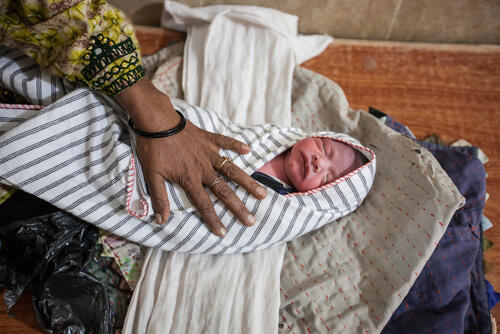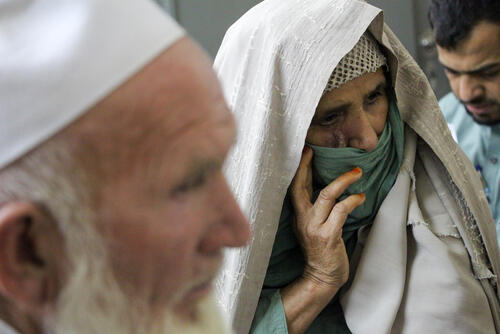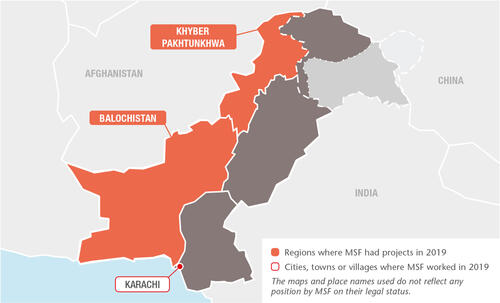
33,200
33,2
6,550
6,55
5,150
5,15
The availability of free, high-quality medical care for women and children is limited, especially in rural areas of Pakistan. Even when services are available, many people cannot afford them. We provide reproductive, neonatal and paediatric care at five different locations in Balochistan and Khyber Pakhtunkhwa provinces. Local communities, Afghan refugees and people who cross the border from Afghanistan to seek medical assistance benefit from MSF’s comprehensive 24-hour emergency obstetric services, which include surgery and referrals for complicated cases.
In addition, we run an inpatient and outpatient therapeutic feeding programme for severely malnourished children in Balochistan. We treated 910 severely malnourished children to our inpatient feedings programmes and admitted 10,200 malnourished children to our outpatient therapeutic feeding programmes in four districts across the province in 2019. Our teams manage trauma cases in Chaman, a town on the border with Afghanistan. In 2019 we also ran the emergency department in Timergara hospital, Lower Dir district. But after over 10 years of services, MSF announced that we would gradually hand over our activities in Lower Dir to the Khyber Pakhtunkhwa health department by January 2021.

Treating endemic diseases
MSF runs four treatment centres for cutaneous leishmaniasis. This neglected parasitic tropical disease is transmitted by the bite of a sandfly and characterised by disfiguring and painful skin lesions. Although not life-threatening, the severe physical disfigurement can lead to stigmatisation and discrimination. Cutaneous leishmaniasis is endemic in parts of Pakistan, but treatment is either unavailable or too expensive for most people.
Consequently, they rely largely on international organisations such as MSF for care. As well as diagnosis and treatment, our teams offer health education and psychological counselling.
During an outbreak of the disease in 2019, we donated medical supplies to the Khyber Pakhtunkhwa Department of Health.
Pakistan has one of the highest prevalence rates of hepatitis C globally. In Machar Colony, a densely populated slum in Karachi, MSF teams provided nearly 8,740 consultations for hepatitis C, which included 1,410 new patients who were enrolled on treatment. The clinic provides diagnosis, treatment, psychological counselling and health promotion activities at a basic healthcare level in a decentralised model of care introduced by MSF in 2015.
Responding to emergencies
MSF assists the Pakistani authorities with emergency response preparedness in case of disease outbreaks or natural disasters. In 2019, during a dengue outbreak across the country, we supported the health authorities through awareness campaigns and donations of mosquito nets, logistical and medical equipment and insecticide. We also donated medical equipment to a hospital in Pakistani-administered Kashmir after it was damaged by an earthquake in September.

















